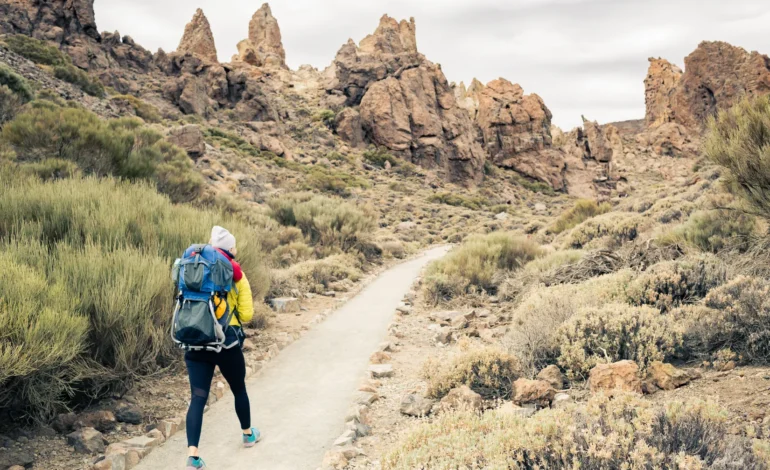Beyond the Brand: Exploring Sustainable and Ethical Travel Backpacks for Men

Introduction
Travelling in a way that is both respectful of the environment and supportive of ethical behaviours has emerged as an important factor for contemporary travellers to consider. Regarding backpacks, the emphasis has turned toward sustainability and ethics rather than simply labels and style. Previously, the focus was on fashion and brands. To make responsible decisions, it is essential to have a solid understanding of the components that make travel backpacks for men sustainable and ethical.
Considerations to Make When Selecting Backpacks That Use Sustainable Materials
Locating Sources of Material and Manufacturing
An important factor in determining a backpack’s durability is the materials utilized in its construction. Discovering eco-friendly components and gaining knowledge of the manufacturing process help determine a product’s environmental effect. These materials include recycled plastics and organic textiles.
Regulations and Certifications Regarding the Environment
By looking for certifications such as Fair Trade or Global Organic Textile Standard (GOTS), you can be sure that the bag uses sustainable practices and satisfies certain ethical criteria.
Design and Functionality of the Product
Featured Ergonomic Design
Additionally to being environmentally friendly, a backpack must also provide comfort and support. Regarding a backpack intended for extended travel, ergonomic designs, cushioned straps, and weight distribution are all quite important.
Capacity & Compartments to Meet the Requirements of Travel
It is not possible to sacrifice functionality with an ethical backpack. Important considerations include determining capacity, arranging compartments, and flexibility to various travel requirements.
Companies That Are Leading the Way in Ethical and Sustainable Backpacks
In terms of their dedication to environmental preservation, several businesses stand out. There are brands like Patagonia, Fjallraven, and Cotopaxi that not only provide fashionable solutions but also emphasize using environmentally friendly materials and ethical production techniques.
Cost versus Long-Term Sustainability
Understanding the durability of sustainable backpacks and their influence on the environment helps determine their long-term worth, even though they may first seem more expensive. This endeavour focuses on Making an investment that benefits the user and the earth.
Recommendations and Experiences from Customers
Real-world experiences and customer evaluations provide vital insights into sustainable backpacks’ durability, comfort, and usefulness, assisting prospective purchasers to make choices based on accurate information.
Maintenance and Longevity, Which Comes Next
Taking care of a sustainable backpack ensures that it will continue to fulfil its function for longer. Tips and practices for simple maintenance, such as cleaning and storing the equipment appropriately, considerably extend the lifetime of environmentally friendly equipment.
The Importance of Transparency in Supply Chains
Understanding Ethical Practices
For customers to be sure that the goods they buy are made ethically, the supply line must be open and clear. When brands give clear information about how their products are made and where their materials come from, customers can make smart decisions.
Consumer Responsibility in Sustainable Choices
As travellers, people can make a big difference in promoting sustainability through the things they buy. Being aware of how the choices people make affect the world can push companies to use more environmentally friendly methods.
Innovations in Sustainable Backpack Design
Use of Alternative Materials
As technology improves, new backpack materials like mushroom leather, hemp, and recyclable plastics are becoming viable options for traditional bag materials. This helps lower our impact on the environment.
Smart Features for Modern Travellers
Adding smart features like built-in chargers, solar panels, and RFID protection can make sustainable bags more useful, meeting the needs of modern travellers while still putting the environment first.
The Role of Consumer Education
Raising Awareness About Sustainability
It is very important to teach people about how to buy environmentally friendly travel stuff. Making people more aware can increase the demand for ethical goods and push companies to prioritize eco-friendly actions.
Resources for Informed Decision-Making
Giving people blogs, tips, and reviews of products can help them make better decisions when choosing eco-friendly bags. These tools help shed light on the different parts of using and ethically making things.
Collaboration with Local Communities
Supporting Artisanal Production
When brands work with local communities, they not only support moral behaviour but also help keep traditional methods alive. This partnership helps local businesses and promotes environmentally friendly actions.
Community-Based Initiatives
Participating in local environmental protection projects can strengthen a brand’s dedication to sustainability, having a bigger effect on efforts to protect the environment around the world.
Impact of Technology on Sustainable Practices
Eco-Friendly Manufacturing Processes
New technologies are making it possible to make products that are better for the environment and to cut down on waste during the manufacturing process.
Blockchain for Supply Chain Transparency
Using blockchain technology can make the supply chain more open, giving customers more accurate information about where their bags came from and how they were made. This new idea helps people make even more fair buying decisions.
Evaluating the Environmental Impact of Backpacks
Life Cycle Assessments
Life cycle assessments (LCAs) can help people figure out how much of an impact backpacks have on the world, from where the materials come from to how they are thrown away. This review is very important for making smart decisions.
Carbon Footprint Considerations
Brands that track and lower their carbon emissions show that they care about the environment. If people know how much carbon a backpack produces, they can choose solutions that are better for the earth.
The Future of Ethical Fashion
Trends in Sustainable Materials
As the fashion industry continues to move toward sustainability, new and eco-friendly materials are being created to make sure that customers can find stylish options that are also good for the environment.
Circular Economy Practices
By using circular economy principles, the backpack industry tries to make goods that last and can be recycled, so that materials are used for as long as possible.
Consumer Trends and Purchasing Behaviour
Shift Towards Minimalism
People are becoming more and more interested in frugal lives, which usually means buying fewer, better things instead of many cheap ones.
The Role of Social Media Influencers
Social media stars have a big effect on what people buy, and they promote brands that care about doing the right thing and being environmentally friendly. Their reach helps get the word out about choices that are good for the world.
Conclusion
If you want to reduce your influence on the environment, one of the most important steps you can take is to make travel choices that are both sustainable and ethical. At the same time as they see the globe, travellers may contribute positively to the earth by selecting backpacks that align with these ideals.









